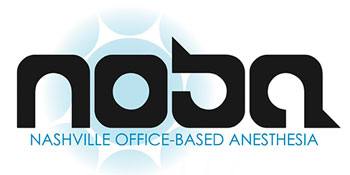
Why Anesthesia
The dental office is often associated with pain. While much has been done to improve the dental experience, many patients have deep rooted fears and anxiety when visiting the dentist. Whatever those fears may be, anesthesia provides an avenue for needed treatment. Children and adults with special needs, dental phobics, limiting medical conditions, inability to get numb, pre-cooperative children, and hyperactive gag reflexes, are a few examples of patients who benefit from anesthesia.
Dentists use drills, needles and foreign tasting substances to treat our teeth that can make going to the dentist an unpleasant experience. Dental anesthesia makes a potentially uncomfortable situation totally relaxing for the patient. The patient gets to sleep through the procedure while the dentist completes the work.
We are frequently asked if we would allow our own children to be under general anesthesia. Absolutely. Anesthesia allows the dentist to focus on treating their patient without increased salivation and active tongues. Usually the materials need to be bonded in the mouth without moisture and it is difficult to do if a patient has an active tongue or needs to close or open their mouth during the procedure.
Why NOBA Anesthesia
Our anesthesiologists are dentist anesthesiologists. We have received extensive training in all types of dental surgeries. A large part of our training includes valuable mobile in-office anesthesia training. This training is invaluable in bringing hospital-grade anesthesia into the office. We understand dental offices and equipment. We understand your surgery because we have performed many of them. We can anticipate your needs and tailor the anesthesia to meet the needs of your procedure.
We are board certified by the American Dental Board of Anesthesia or working to become so, and we are graduates from accredited dental anesthesia residency programs. These residency programs require competency in all types of dental surgeries. They require extensive training in nasal (through the nose) intubation. No other medical or dental programs that we are aware of provide the level of experience in mobile dental surgery that dental anesthesia residencies provide.
Professionalism. You get personalized attention. The performing anesthesiologist will call the evening before your procedure to discuss any questions or concerns you may have. The anesthesiologist is also readily available following your procedure should you need assistance. From our front office to our assistants, we take pride in serving you.
Improved Methods. We use the latest in compact mobile anesthesia equipment and monitors. From HD video laryngoscopes to flexible breathing tubes, we are constantly striving to provide an improved dental visit. Our expertly designed mobile trucks effortlessly deliver monitors, machines, crash carts, and emergency equipment and supplies efficiently to the office.
Frequently Asked Questions
-
Why Mobile Anesthesia?
The team at Nashville Office-Based Anesthesia work hard to make sure that each one of their patients is comfortable. A patient will often times require complex procedures that would otherwise require multiple visits. By using anesthesia, the patient can get all of his or her dental work done in one visit which is much more convenient to fit in busy schedules. Mobile anesthesia is less expensive than anesthesia administered at a hospital.
Dentists love NOBA because they can take care of their patients in the comfort of their dental office rather than traveling to the hospital for a procedure. Mobile anesthesia is more cost effective than procedures done at hospitals. Though not every case can be handled in a dentist’s office, the exceptions are rare.
-
Is Mobile Anesthesia Safe?
Mobile anesthesia is a growing trend in the United States. Advances in anesthetic drugs and anesthesia equipment enable a trained dentist anesthesiologist to transform almost any dental office into an operating room, complete with hospital grade monitors, anesthesia machines, and emergency equipment. The anesthesia procedures mirror those received in hospitals and surgery centers, including airway protection. Our belief is that most dental surgeries require airway protection to include intubation. Intubation for oral surgical procedures insures against foreign substances (i.e. water, tooth particles, and dental materials) from entering the lungs and yet insures oxygen delivery. You can take comfort in knowing you or your child will be continuously monitored by our anesthesiologists. This monitoring includes: pulse oximetry, blood pressure, electrocardiography, temperature, and gas analysis (carbon dioxide, oxygen, and anesthetic gas levels), NOBA meets and exceeds all state requirements concerning in-office anesthesia.
-
Are There Any Side Effects?
Dental Anesthesia is generally considered a minor surgery. As such, the side effects are generally considered mild and are of short duration. Children will frequently wake up irritable but usually return to normal activity within about 2 hours. Adults may feel sedated a little longer than children, but they usually return to normal activity the same day. If you have specific questions or concerns, feel free to contact us directly and one of our anesthesiologists will answer any specific concerns directly.
-
What Is Intubation? Why Is It Necessary?
Intubation is a very common and routine procedure in which a breathing tube is placed to ensure a safe airway. This tube protects against foreign substances (i.e. water, tooth particles, and dental materials) from entering the throat and lungs. It also ensures anesthetic gas delivery and oxygen delivery. Dental surgery is unique in that it involves both the surgeon and the anesthesiologist sharing the oral cavity. Intubation allows the anesthesiologist to continue to monitor the patients breathing while granting free access to the dental surgeon to accomplish his or her work. With a patient asleep and the airway controlled, your dental surgeon can work efficiently and effectively.
Specialized monitoring equipment along with intubation allows for enhanced monitoring of the patients breathing status and oxygenation levels and alerts the anesthesiologist if there are any changes in the patients breathing.
The latest in cutting edge video equipment aids the anesthesiologist to place the breathing tubes quickly and with little discomfort for the patients. It is our belief that intubation makes anesthesia safer and allows the dental surgeon free access to perform dental surgery with minimal airway interuptions or limitations
-
Do You Accept Insurance
Many insurance companies work hard to deny out of facility anesthesia. For this reason, we DO NOT accept any insurance. However, it is our belief that if you are persistent, you can obtain reimbursement for anesthesia services. We will work with you and provide the forms necessary to submit for reimbursement.
For best results contact your insurance provider before treatment is completed. In most instances, we believe you will find that after deductibles, Copays, and miscellaneous charges, you will pay less out of pocket with in office anesthesia. No surprises months after your treatment.
-
What Forms of Payment Do You Accept?
We accept all major credit cards, Care Credit, checks, and cash.
-
What Types of Medication Do We Use?
The majority of your anesthetic will consist of inhalational agents (gases). The major benefit of an inhalation agent is that only a very small percentage is actually metabolized by the body. This generally leads to shorter recovery times and less drug directly into the blood stream. The common medications used in our dental surgeries include: Sevofluorane, Isofluorane, Propofol, Midazolam, Ketorolac, and Dexamethazone.
-
Does The American Academy of Pediatric Denistry (AAPD) Endorse Office Anesthesia?
Yes. From the 2012 Guidelines of Anesthesia Personnel in the Administration of Office-based deep sedation/general anesthesia to the Pediatric Dental Patient, the AAPD had this to say.
“Deep sedation/general anesthesia in the dental office can provide benefits for the patient and the dental team. Access to care may be improved. The treatment may be scheduled more easily and efficiently. Facility charges and administrative procedures may be less than those associated with a surgical center. Complex or lengthy treatment can be provided comfortably while minimizing patient memory of the dental procedure. Movement by the patient is decreased, and the quality of care may be improved. The dentist can use his/her customary in-office delivery system with access to trained auxiliary personnel, supplemental equipment, instrumentation, or supplies should the need arise. The use of anesthesia personnel to administer sedation/general anesthesia in the pediatric dental population is an accepted treatment modality”
-
Is Office-based or Ambulatory Anesthesia Endorsed by the American Dental Association (ADA)?
The ADA made this statement is 2005: “Ambulatory anesthesia is an integral part of the management of anxiety and pain control for dental patients. It is in the best interest of the public and the profession that access to this cost-effective service be widely available.”

 My daughter was terrified of dental work until we were referred to NOBA. They made me feel comfortable with the process and we were able to get all of her dental work done in one appointment.
My daughter was terrified of dental work until we were referred to NOBA. They made me feel comfortable with the process and we were able to get all of her dental work done in one appointment. I was very fearful of having dental work done, but NOBA and the anesthesia team were very calm, thorough, and professional. They were willing to make me as comfortable as possible. I couldn't be happier with the experience.
I was very fearful of having dental work done, but NOBA and the anesthesia team were very calm, thorough, and professional. They were willing to make me as comfortable as possible. I couldn't be happier with the experience.